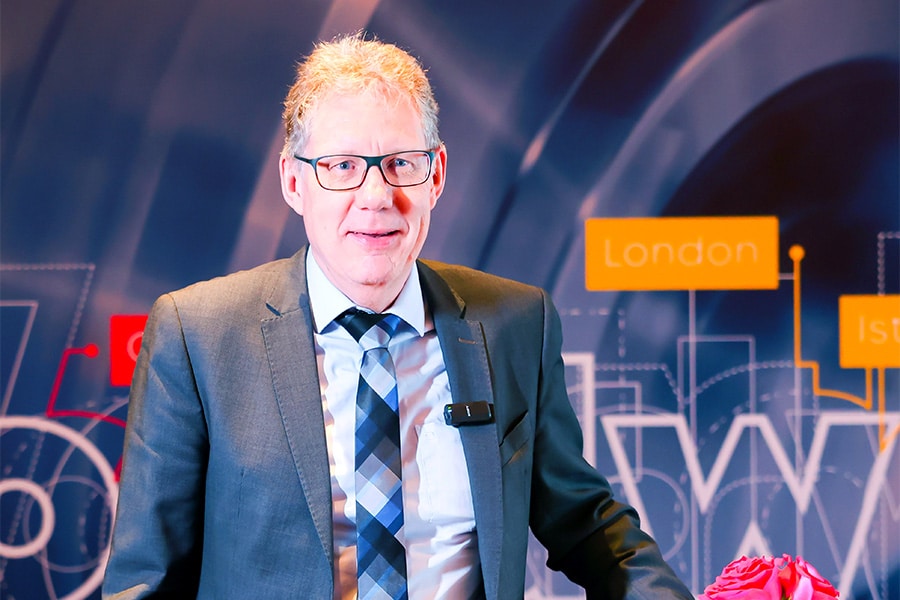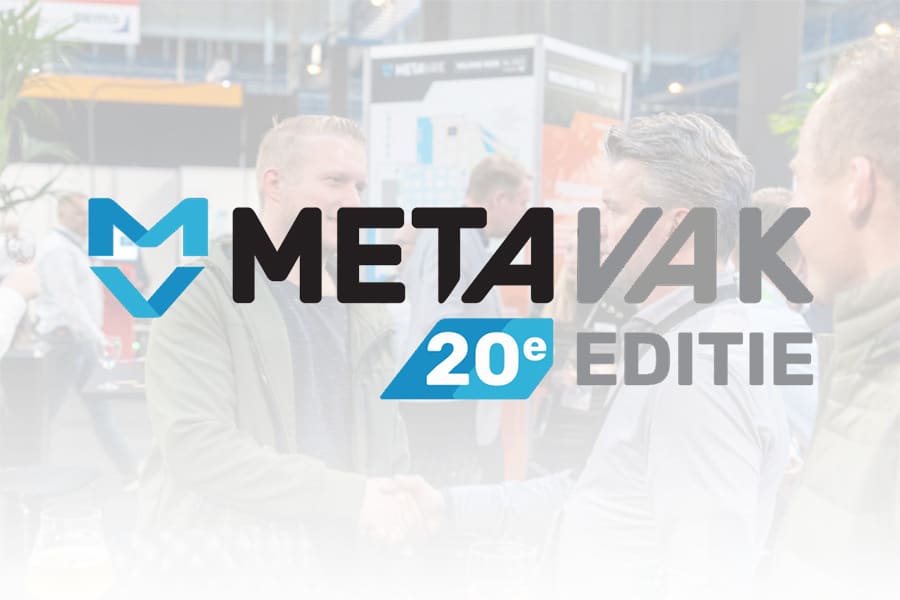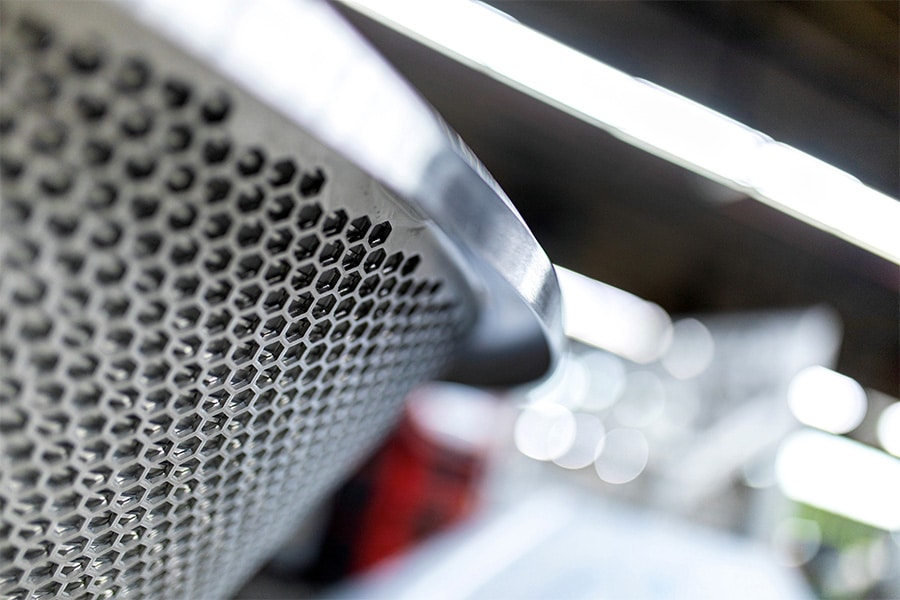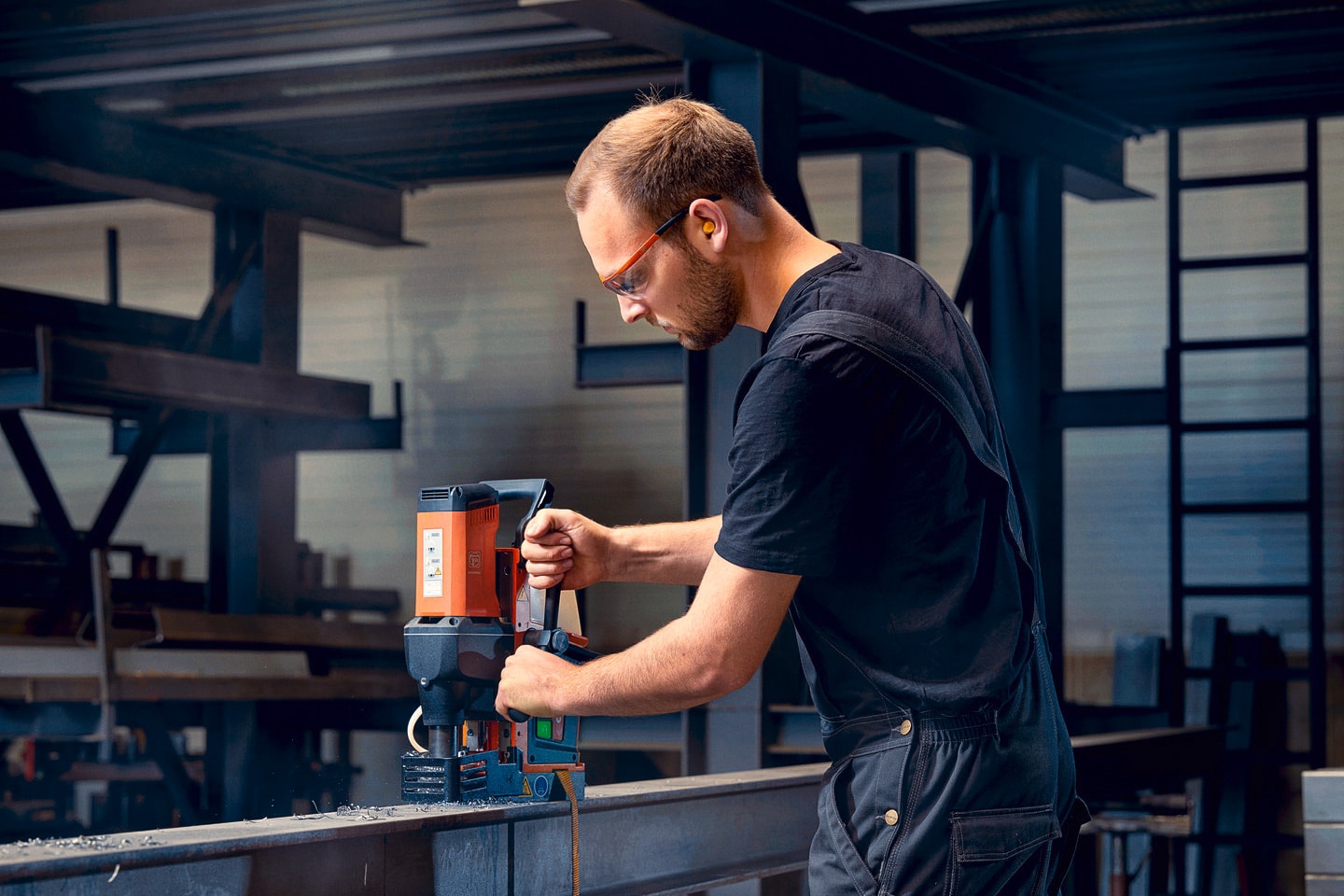
'If you want to be able to make strides you have to be inspired by yourself'
Over the past few decades, the image of and in the machining industry has changed dramatically. From halls full of stand alone machines where the emphasis was on individual operations, we now see multifunctional production cells where the emphasis has shifted to efficient total solutions.
Intelligent communication between man, machine and organization(s) is crucial here and plays a key role in man-poor and unmanned production. These are important tools with which we as European industry can successfully compete with low-wage countries. But then of course we have to maintain our high (production) technological level and if possible further improve it. How? This does not happen automatically, of course, and certainly not if you are not open to new developments. This is precisely why a trade fair like EMO is and remains so important.
During the corona pandemic, we tried using "virtual exchanges" over the Internet. But that turned out not to work. The lack of personal contact was to blame. Because that is precisely what lays the foundation for inspiring conversations in which supplier and customer take each other to a higher level. It is also very important to see with your own eyes what is currently possible in terms of machines, tools, robotics, logistics and software. Trade fairs with well-stocked booths and an expert crew are and will therefore continue to play a key role in the innovation race. During the previous edition in 2023, some 93,000 visitors from more than 140 countries visited the EMO in Hannover, and we will again be able to welcome many tens of thousands of international visitors at the upcoming trade fair in September. What can they expect? Above all, many concrete solutions in the area of production automation. This was already an important topic at the previous EMO in 2023 and has only become more important. Because in Western Europe there continues to be a growing shortage of skilled workers, while it also seems to be getting increasingly difficult to interest young people in a career in the metal sector. In addition, we are also dealing with a changed work ethic which means that young people no longer want full-time jobs.
If, as a manufacturer, you still want to have sufficient production capacity, then you cannot get below 24/7 automation. For the customer, everything ultimately revolves around the price/quality ratio in combination with fast and reliable delivery. If we compare our production world with that of China or the United States, we have to deal with higher energy costs, while factories in China are also subsidized by the government. So with us it comes down hugely to efficiency on all fronts. Energy consumption must be reduced. We have to increase the use of alternative energy sources such as solar and wind power, and we will also have to look very critically at material costs. But also at the CO2 footprint. Together with our VDW members, we are developing a measurement method to calculate the CO2 footprint of machines. Because customers are also becoming increasingly demanding and require machines that are fast, accurate, reliable, but also efficient and energy efficient. Apart from that, we see that far-reaching digitalization is penetrating the world of machinery more and more.
This is reflected in the rise of condition monitoring, predictive maintenance, additive manufacturing and Artificial Intelligence. These developments will give the metal world an important new boost, enabling us to develop and produce products even faster and more efficiently. The European metal sector belongs to the absolute world top and by keeping each other sharp, we will succeed in maintaining this dominant position. Therefore, take every opportunity to be inspired. So see you at the EMO which takes place from Monday, September 22 to Friday, September 26 in Hannover.
The Pen - Dr.-Ing. Markus Heering - Director Verein Deutscher Werkzeugmaschinen (VDW).



